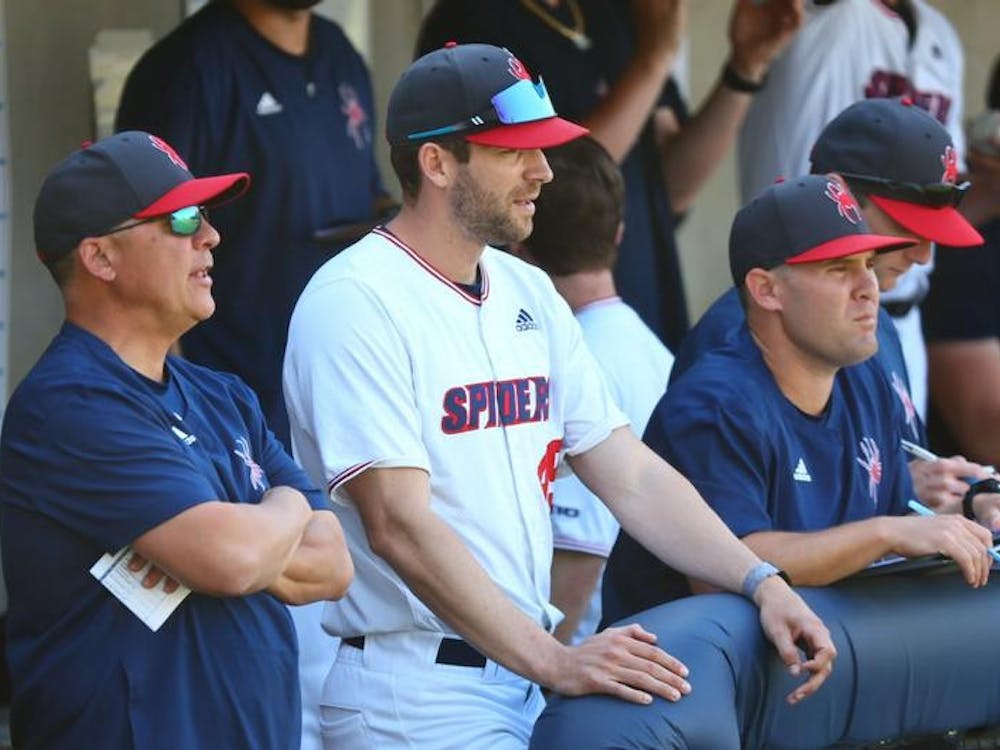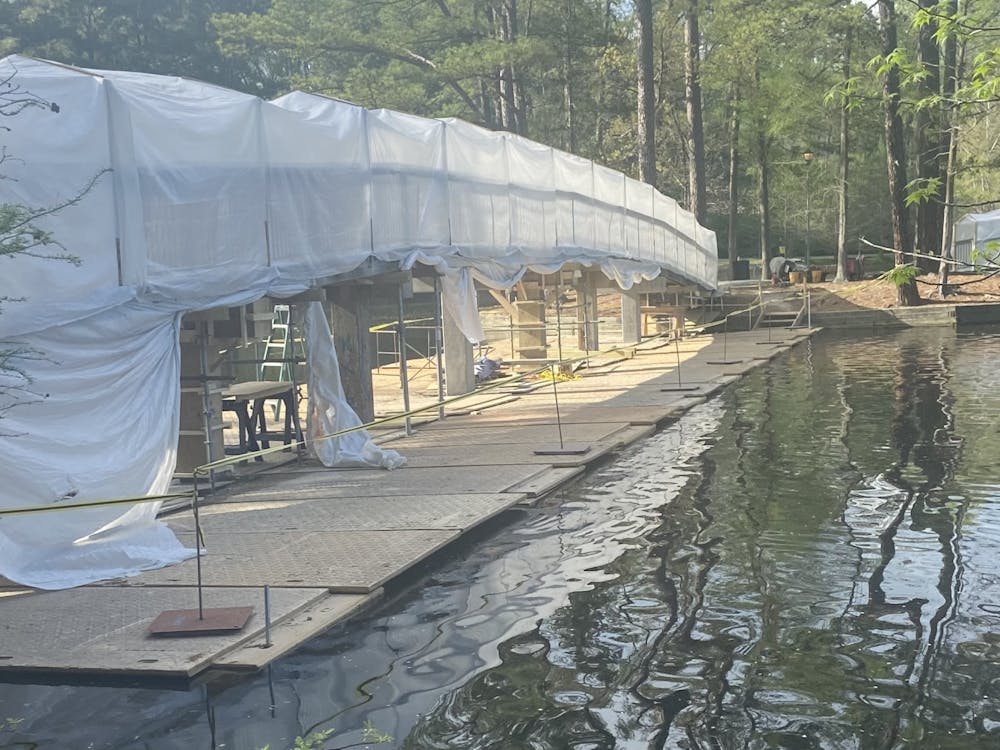The National Science Foundation has awarded the University of Richmond a $300,000 grant for the purchase of a computer cluster for biology, chemistry and materials science.
Carol Parish, a chemistry professor, led the effort to write a proposal that explained the importance of increasing computational capacity and described the research into computational chemistry and biology that could be done with the grant.
The proposal was researched and written with the help of faculty from Richmond and other universities, who will also benefit by using the computer cluster via the Internet. Kelling Donald, Ellis Bell, Sam Abrash and Rene Kanters from the chemistry department, along with Eugene Wu from the biology department, contributed to the proposal, as did Erin Dahlke-Speetzen from Loras College, John Thoburn from Randolph Macon College and Edmund Ndip from Hampton University.
"Together the faculty crafted a proposal describing the sorts of computational chemistry and biology that we would do with the computer cluster," Parish said. "We also described how it would advance our research projects and help our undergraduates to generate data for presentations and peer-reviewed publications. Publications, in particular, are a significant accomplishment for an undergraduate and UR is one of only a handful of places where this happens."
Parish's lab has funding from the NSF to investigate anti-cancer drugs, and from the Department of Energy to research alternative forms of energy. The computers will allow Parish, her colleagues and students to significantly increase their computational capacity, which will further research efforts.
"The cluster will be used to carry out calculations on chemical systems that would be, let's say, unrealistic to try by hand," Donald said. "It is increasingly possible to employ theoretical or computational strategies to find accurate answers to the toughest questions in chemistry. These may be questions about how atoms bond, or structural, electronic and magnetic properties of molecules."
Donald said different groups within the chemistry department were also planning to use the computers to further the understanding of the structure of proteins and other biologically important molecules, as well as inorganic materials that are of interest in the industry.
Students in particular will benefit from the new computer cluster because it will allow them to perform the calculations necessary to further their research and to interpret and present their findings to their peers, Donald said. In some cases, students present their research in poster form or in oral sessions, and contribute to the eventual publication of the findings.
"This is an invaluable experience that transcends in decisive ways the conventional classroom experience," Donald said.
Although the computers are capable of performing complex computations, they are not different from traditional personal computers. The cluster is simply a network of individual, high-performing computers that will be used specifically for science research.
"The types of computers we use resemble servers and contain many smaller computers linked together," said Tyler Steele, a student who works in Parish's lab. "These are called cluster computers. The new computer will be a cluster computer and it will allow us to conduct a greater amount of research with a number of new collaborators."
The university will contribute $50,000 to the $300,000 grant, which will be used to purchase 88 computers. This is an unusually high number of research computers for an undergraduate research institution, according to a university press release about the grant.
Enjoy what you're reading?
Signup for our newsletter
According to the NSF, the success rate for proposals is approximately 33 percent. Parish and her colleagues had originally requested $450,000, but a higher number of applicants than in previous years made the selection process more competitive. Parish said their proposal had reviewed very well, but because the program officer had wished to fund as many deserving proposals as possible, he had reduced their budget to $300,000.
Donald said the computer cluster might be on campus as early as this spring and once all the equipment arrives, the computers should be ready for use within days.
Contact staff writer Maria Ribas at maria.ribas@richmond.edu.
Support independent student media
You can make a tax-deductible donation by clicking the button below, which takes you to our secure PayPal account. The page is set up to receive contributions in whatever amount you designate. We look forward to using the money we raise to further our mission of providing honest and accurate information to students, faculty, staff, alumni and others in the general public.
Donate Now


